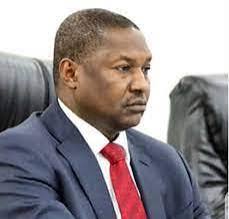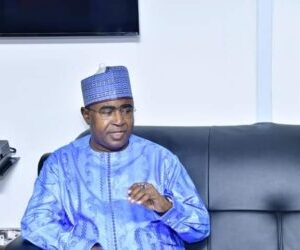There is an old saying that no matter how much one washes a black pot, it can never turn white. The same imagery can be said while discussing Abubakar Malami (SAN), Nigeria’s former Attorney General and Minister of Justice under President Muhammadu Buhari (2015–2023), now reportedly nursing an ambition to govern Kebbi State.
During his tenure, Malami was a central figure in several high-profile controversies that shaped public perception of the Buhari administration’s anti-corruption drive. Hi supporters may see him as a seasoned lawyer who defended government policies, however, his tenure represents one of the darkest chapters in Nigeria’s legal and political history due to his executive overreach and selective justice.
It was under Malami that Nigerians witnessed how influential — and how contentious — the office of the Attorney General could be. From shielding political allies to persecuting perceived enemies of government with unusual zeal by the then Ministry of Justice. This undermined confidence in the impartiality of the justice system.
There is a Hausa proverb that says, “Even if you wash the hand of a thief, the smell of onions will not leave it.” The scandals that trailed his years in office as Nigeria’s Justice Minister are too many to count.
Take, for instance, the management of repatriated Abacha loot. Media reports at the time raised questions about the payment of substantial legal fees to private firms in connection with the recovered funds. Although Malami’s office defended its actions as lawful, transparency advocates still criticised the process.
Similarly, Malami’s legal advice on the long-running Malabu (OPL 245) oil case. Malami’s opinions was believed to have created loopholes favourable to powerful interests. Malami’s camp keep rejecting that characterisation, but the perception stuck.
Other episodes also provoked public debate: the auction of seized assets, alleged interference with anti-graft agencies such as the EFCC and ICPC, and the government’s failure at times to comply promptly with court orders in high-profile cases like those of Omoyele Sowore, Sambo Dasuki and Sheikh Ibrahim El-Zakzaky. Even outside official duties, Malami’s public image was dented by optics.
Meanwhile, his family flaunted sudden wealth that mocked the poverty of ordinary Nigerian. We have seen photos and videos of his family’s high-profile and extravagant celebrations during his son’s wedding
Civil society also linked Malami to support for the controversial “anti-social media” proposals debated around 2019, which would have curtailed online freedom of expression. The bill did not become law, but it reinforced perceptions of a government trying to stifle dissent.
These were not isolated incidents. The pattern in which Malami’s actions were seen, suggests a public servant whose tenure was marked more by controversies than by reforms.
Leadership, however, is not just about ambition; it is about credibility and public trust. As Kebbi people weigh their choices ahead of 2027, they must decide whether Malami’s record — rightly or wrongly perceived — gives him the moral authority to lead.
The lesson here is not personal but institutional. Nigeria needs office-holders who can both uphold the law and be seen to do so. As Chinua Achebe warned, “One of the truest tests of integrity is its blunt refusal to be compromised.” Whether Malami passes that test is for Kebbi voters and investigators, to decide.
Let it be clear, Kebbi deserves the best leadership possible. In a democracy, that means robust scrutiny of every aspirant’s record. History will judge — and so will the electorate.
Malami’s governorship ambition must not be allowed to stand unchallenged. History is watching, the people are watching. For Malami and his supporters, must know that, no black pot, no matter how polished, can ever be white. No political makeover can erase the fact that “his hands are stained” for Kebbi governorship come 2027.
Laka writes from Kaduna








